
Luanda: The Vibrant Heart of Angola
Luanda, the capital of Angola, is a city of contrasts, where modern skyscrapers stand alongside colonial-era architecture. It's a vibrant city that pulses with the rhythm of African culture and history. The city is situated on the Atlantic coast and boasts stunning ocean views, making it a perfect destination for beach lovers and history enthusiasts alike. One of the key attractions in Luanda is the Fortaleza de São Miguel, a fortress that dates back to 1576. It offers panoramic views of the city and the bay, and its museum provides a fascinating insight into Angola's colonial past. Another must-visit location is the Mausoleum of Agostinho Neto, a striking architectural landmark dedicated to the first President of Angola. For those interested in nature and wildlife, a trip to the Kissama National Park is a must. Just a few hours from Luanda, this park offers a chance to see elephants, zebras, and other wildlife in their natural habitat. The Ilha do Mussulo, a picturesque peninsula, is another popular spot for both locals and tourists, offering pristine beaches and a variety of water sports. Luanda is also known for its vibrant nightlife and delicious cuisine. The city's restaurants offer a mix of traditional Angolan dishes and international cuisine. Don't miss the chance to try local favorites like Moamba de Galinha (chicken stew) and Calulu (dried fish or meat stew). The local markets, such as the Mercado do Roque Santeiro, provide a unique shopping experience where you can find everything from handmade crafts to fresh produce.
Local tips in Luanda
- Carry cash: Credit cards are not widely accepted, and ATMs can be unreliable.
- Dress modestly: While Luanda is fairly modern, it's best to dress conservatively, especially when visiting religious sites.
- Plan for traffic: Luanda's traffic can be heavy, so plan your travel times accordingly.
- Stay hydrated: The climate can be hot and humid, so make sure to drink plenty of water.
- Learn some Portuguese: While you can get by with English in some places, knowing a few phrases in Portuguese can be very helpful.
Neighbourhoods in Luanda
Luanda: The Vibrant Heart of Angola
Luanda, the capital of Angola, is a city of contrasts, where modern skyscrapers stand alongside colonial-era architecture. It's a vibrant city that pulses with the rhythm of African culture and history. The city is situated on the Atlantic coast and boasts stunning ocean views, making it a perfect destination for beach lovers and history enthusiasts alike. One of the key attractions in Luanda is the Fortaleza de São Miguel, a fortress that dates back to 1576. It offers panoramic views of the city and the bay, and its museum provides a fascinating insight into Angola's colonial past. Another must-visit location is the Mausoleum of Agostinho Neto, a striking architectural landmark dedicated to the first President of Angola. For those interested in nature and wildlife, a trip to the Kissama National Park is a must. Just a few hours from Luanda, this park offers a chance to see elephants, zebras, and other wildlife in their natural habitat. The Ilha do Mussulo, a picturesque peninsula, is another popular spot for both locals and tourists, offering pristine beaches and a variety of water sports. Luanda is also known for its vibrant nightlife and delicious cuisine. The city's restaurants offer a mix of traditional Angolan dishes and international cuisine. Don't miss the chance to try local favorites like Moamba de Galinha (chicken stew) and Calulu (dried fish or meat stew). The local markets, such as the Mercado do Roque Santeiro, provide a unique shopping experience where you can find everything from handmade crafts to fresh produce.
When is the best time to go to Luanda?
Iconic landmarks you can’t miss
EPIC SANA Luanda Hotel
Discover elegance and unrivaled comfort at EPIC SANA Luanda Hotel, your luxurious home away from home in Angola's vibrant capital.
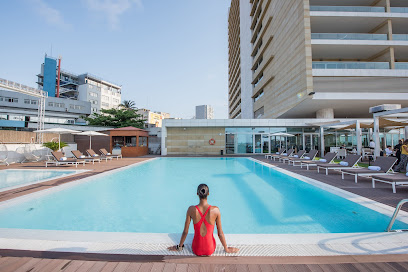
Restaurante Café Del Mar
Experience the vibrant culture and exquisite local cuisine at Café Del Mar on Ilha de Luanda, a culinary gem with stunning ocean views.
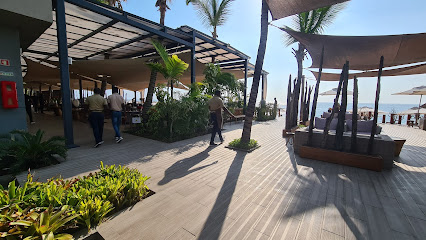
Fortaleza de São Miguel
Discover the historical grandeur and panoramic views at Fortaleza de São Miguel, Luanda's iconic fortress and a testament to Angola's rich heritage.
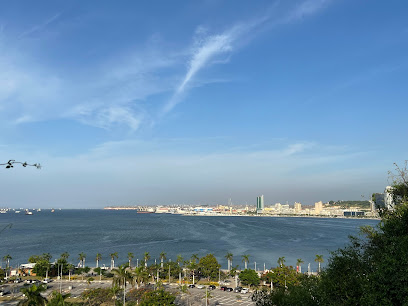
Cervejaria Fininho
Experience authentic Angolan cuisine at Cervejaria Fininho, Luanda. Enjoy fresh seafood, grilled meats, and local dishes in a vibrant atmosphere.
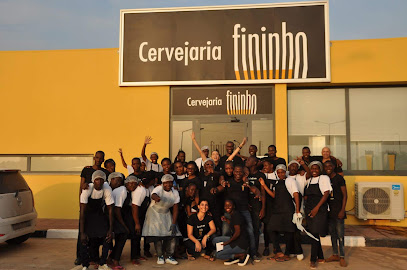
Miami Beach
Experience the vibrant flavors of Angola at Miami Beach, a culinary haven in the heart of Luanda offering a delightful dining experience.
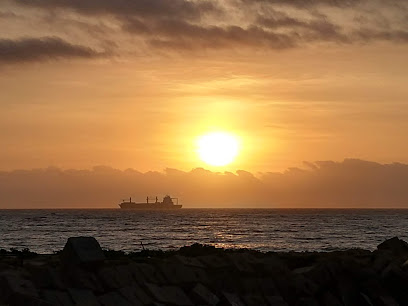
O Convés
Experience the vibrant flavors of Angola at O Convés, a cozy restaurant in Luanda offering a delightful array of local and international dishes.
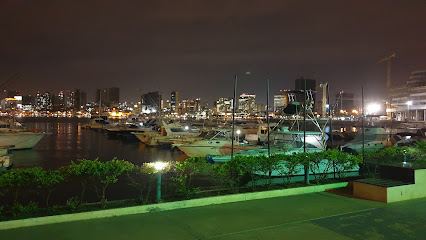
Viewpoint of the Moon
Discover Angola's lunar landscape: Witness the breathtaking beauty of Miradouro da Lua, a natural wonder sculpted by erosion near Luanda.
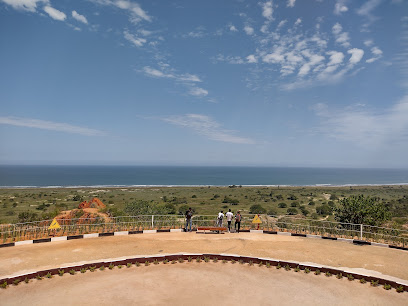
Hamburgueria KiKuia
Discover the delicious flavors of Luanda at Hamburgueria KiKuia, where mouth-watering burgers and a welcoming atmosphere await you.

Museu da Moeda
Explore the fascinating history of currency at Museu da Moeda in Luanda, a must-visit destination for history and finance enthusiasts alike.
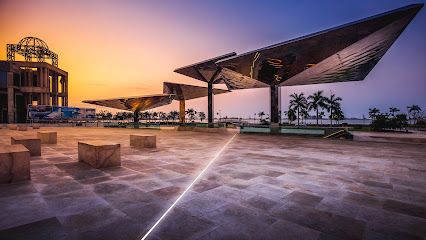
Church of Carmo
Explore the Church of Carmo in Luanda, a stunning Catholic church blending rich history and beautiful architecture, a must-see attraction for every traveler.
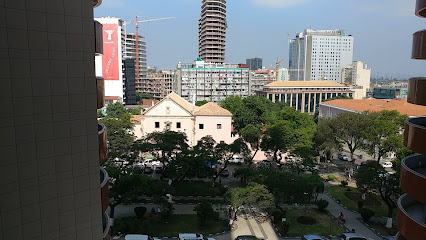
National Slavery Museum
Explore the National Slavery Museum in Belas, where history comes alive through powerful exhibits and narratives about the impact of slavery.
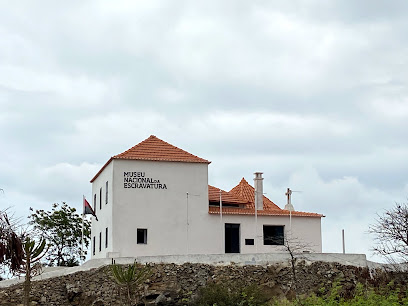
Cervejaria Fininho - Ilha
Experience Luanda's vibrant flavors at Cervejaria Fininho, offering a diverse menu of Angolan, Portuguese, and Brazilian-inspired dishes on Ilha de Luanda.
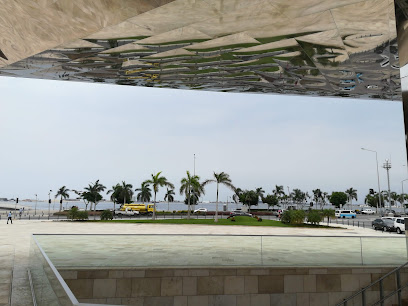
Luanda Bay
Explore Luanda Bay, where stunning coastal views meet vibrant local culture in the heart of Angola's captivating capital.
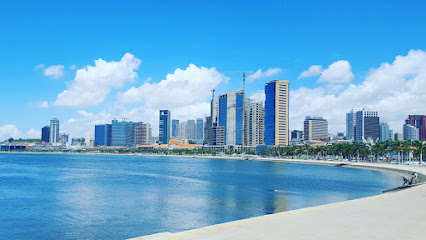
Malibu Beach Club
Discover the best of Luanda at Malibu Beach Club, where ocean views meet local cuisine for an unforgettable dining experience.
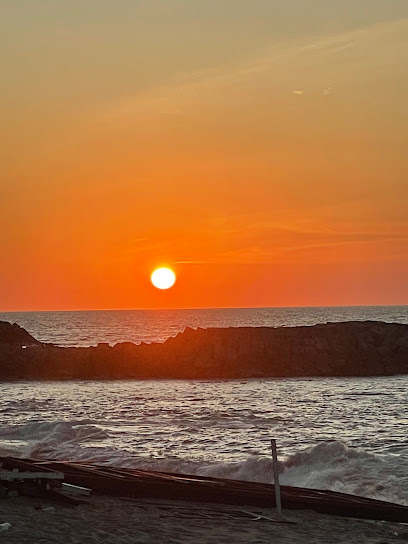
Ilha de Luanda
Discover Ilha de Luanda: Beaches, culture, and vibrant nightlife converge on this Angolan island paradise, just a stone's throw from the capital.
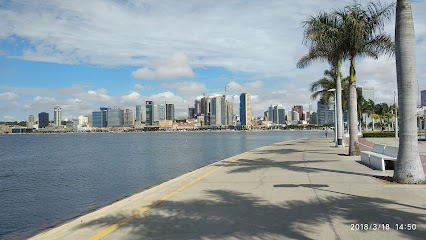
Unmissable attractions to see
Fortress of São Miguel.
Explore Luanda's Fortress of São Miguel: a historic landmark offering panoramic views and a glimpse into Angola's colonial past.
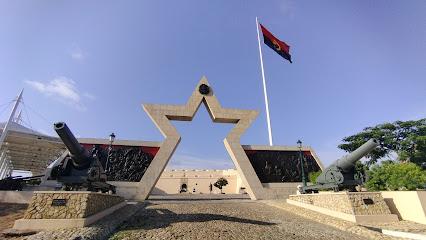
Viewpoint of the Moon
Discover Angola's lunar landscape at Miradouro da Lua: a breathtaking vista of sculpted cliffs and vibrant colors just south of Luanda.
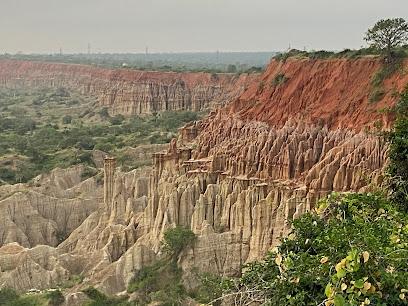
Miramar Park
Escape to Luanda's Miramar Park: A serene urban oasis with green spaces, playgrounds, and a relaxing atmosphere for all to enjoy.
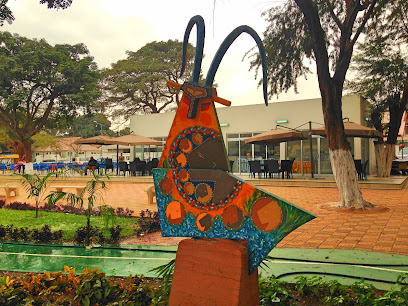
Lighthouse Island
Discover the serene beauty and maritime history of Lighthouse Island, a tranquil escape just off the coast of Luanda, Angola.
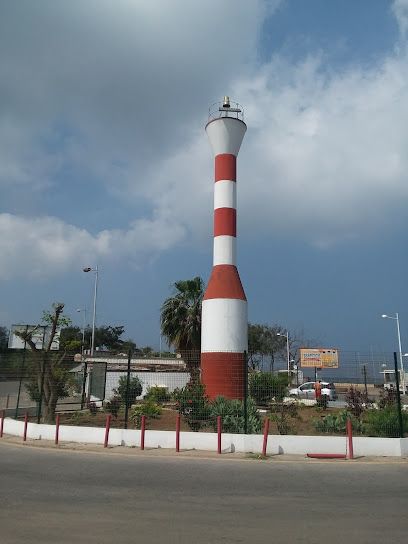
Museum of the Armed Forces
Explore Angola's military history at the Museum of the Armed Forces, housed in the historic Fortaleza de São Miguel in Luanda.
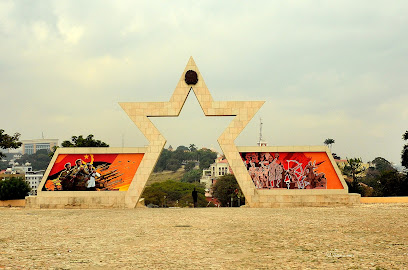
Church of Our Lady of Remedies
Discover Luanda's iconic cathedral, a blend of colonial history, architectural beauty, and spiritual significance in the heart of the city.
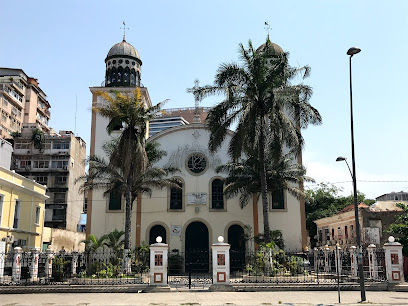
National Museum of Anthropology
Discover Angola's rich cultural heritage at the National Museum of Anthropology in Luanda. Explore traditions, art, and history.
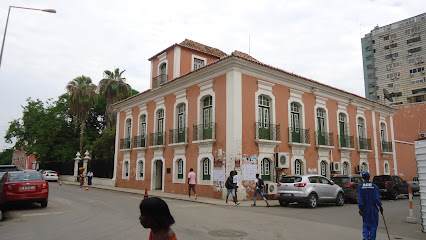
Monumento O Soldado desconhecido
A solemn tribute to Angola's unknown soldiers, the Monumento O Soldado Desconhecido offers a place for reflection and connection with the nation's history.
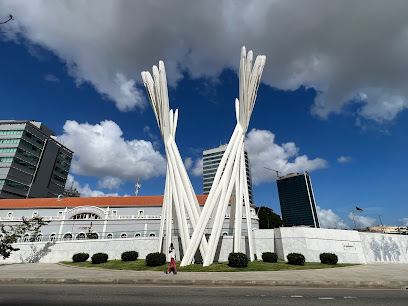
Peninsula Mussulo
Escape to Mussulo Peninsula: Pristine beaches, turquoise waters, and vibrant island life await near Luanda, Angola.
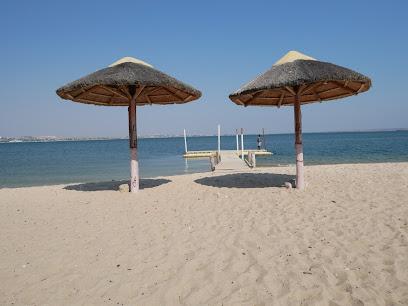
Parque Da Independência De Angola
Explore Angola's history at Parque da Independência in Luanda, a serene and significant landmark of the nation's journey to freedom.
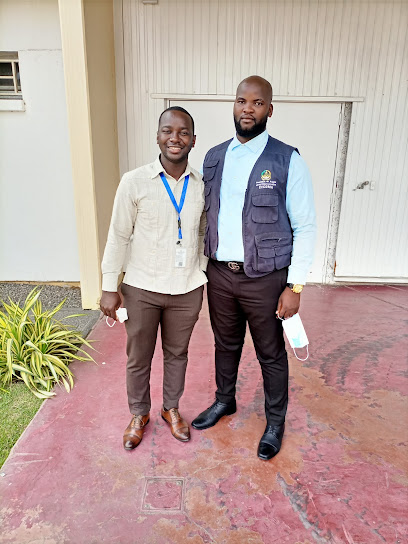
Ilha do Refúgio
Escape to Ilha do Refúgio: Luanda's accessible island retreat with tranquil views, local culture, and a serene coastal atmosphere.
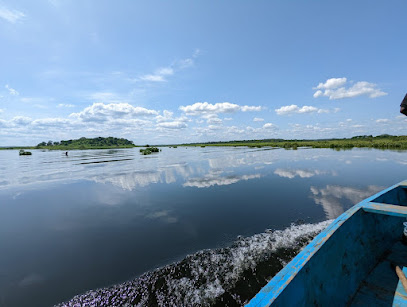
Fazenda Tungane
Escape to Fazenda Tungane in Calumbo, Luanda: A serene oasis of natural beauty and Angolan culture, perfect for relaxation and exploration.

Belas
Discover Belas, Angola: Where modern city life meets stunning natural beauty and rich cultural heritage.

CIDADE ALTA
Discover Luanda's political heart in Cidade Alta, where colonial history meets modern governance and offers panoramic city views.
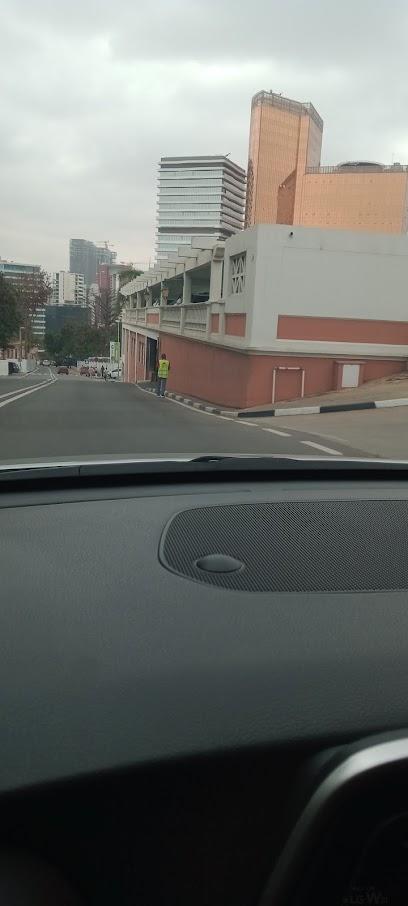
Shipwreck
Explore the eerie beauty of Angola's Shipwreck Beach near Panguila, a haunting coastline where time and tide have created a surreal maritime graveyard.

Essential places to dine
Restaurante Café Del Mar
Experience exquisite dining at Café Del Mar in Luanda—where local flavors meet international cuisine against breathtaking ocean views.
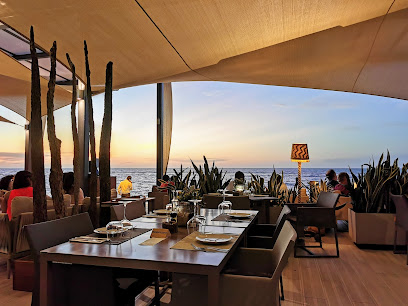
Restaurante São João
Experience authentic Portuguese cuisine at Restaurante São João in Luanda, where each dish tells a story of flavor and tradition.
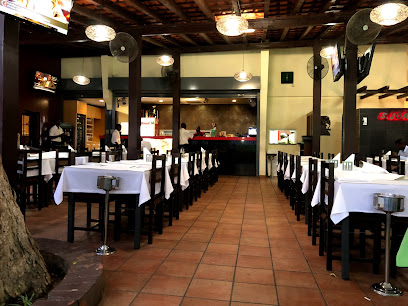
O Madeirense Cidade
Discover O Madeirense Cidade in Luanda: A delightful haven for authentic Portuguese cuisine amidst Angola's vibrant culture.
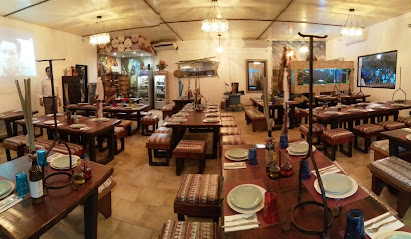
Miami Beach
Discover the vibrant flavors of Angola at Miami Beach Restaurant in Luanda – where culinary delights meet warm hospitality.
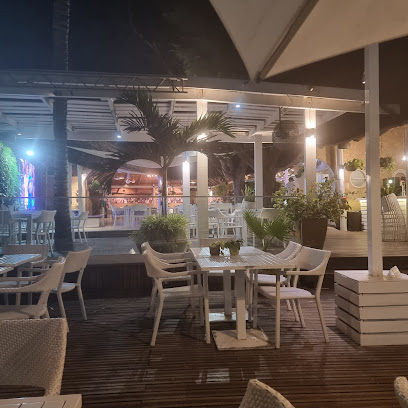
Esplanada Grill, Lda - Angola 244 935114844
Experience authentic Brazilian flavors at Esplanada Grill in Luanda – perfect for quick bites or leisurely meals amidst Angola's vibrant culture.
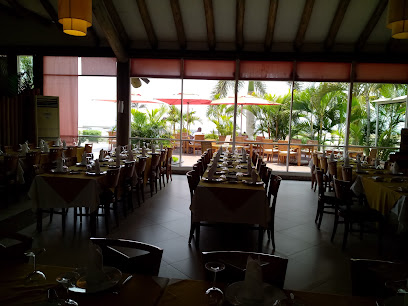
Restaurante Barbarico
Experience authentic Angolan cuisine at Restaurante Barbarico in Luanda – where tradition meets flavor.
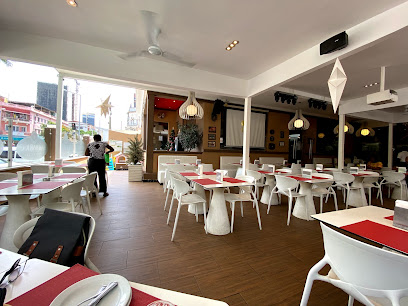
O Convés
Discover O Convés: An inviting restaurant in Luanda offering authentic Angolan cuisine with a modern twist amidst vibrant local culture.
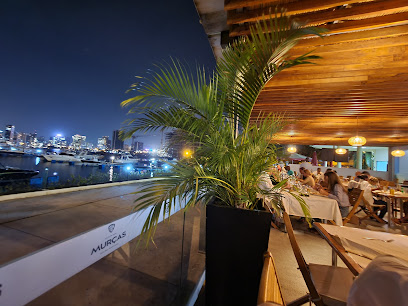
Restaurante Veneza
Discover the authentic taste of Portugal at Restaurante Veneza in Luanda – where culinary tradition meets warm hospitality.
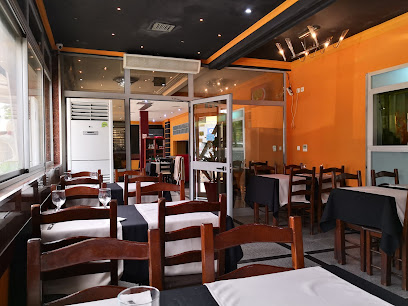
Restaurante la Vigia
Experience exquisite seafood at Restaurante la Vigia in Luanda - where local flavors meet stunning coastal views.
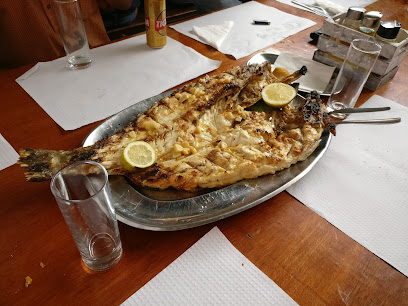
Espaço Luanda
Discover exquisite Angolan cuisine at Espaço Luanda - where tradition meets modern dining in a vibrant setting.
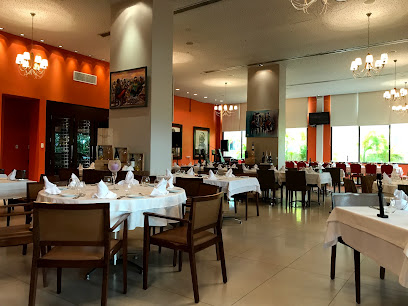
Taverna do Morro
Discover authentic Angolan cuisine at Taverna do Morro in Luanda – where tradition meets flavor in a warm atmosphere.
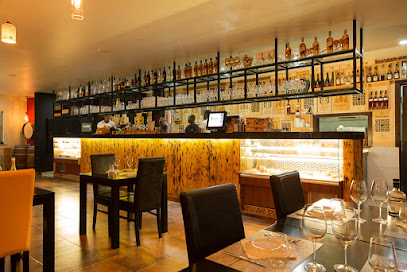
Lookal Mar - Marisqueira
Experience the rich flavors of Angolan seafood at Lookal Mar - Marisqueira, where every dish tells a story of tradition and taste.
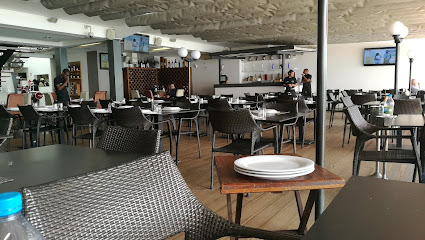
Al-Amir Restaurant
Discover authentic Lebanese flavors at Al-Amir Restaurant in Luanda - where every dish tells a story.
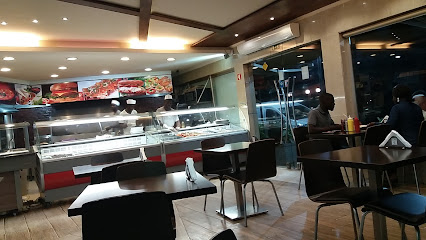
Restaurante Pimms
Experience the finest Angolan cuisine at Restaurante Pimms in Luanda – where elegance meets flavor.
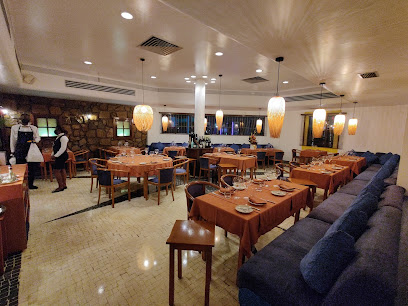
O Toscano Restaurante
Experience authentic Italian flavors at O Toscano Restaurante in Luanda - where tradition meets local charm.
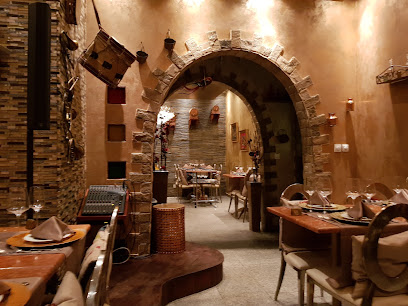
Markets, malls and hidden boutiques
Belas Shopping
Explore the vibrant Belas Shopping in Luanda for an unforgettable shopping and dining experience amidst Angolan culture.
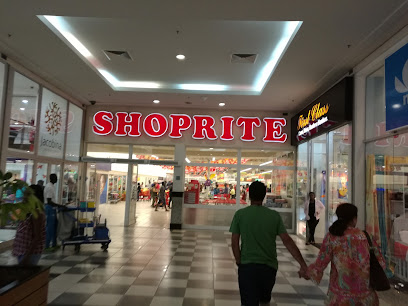
Xyami Shopping
Discover the ultimate shopping experience at Xyami Shopping in Luanda, featuring a mix of local and international brands, dining, and entertainment.
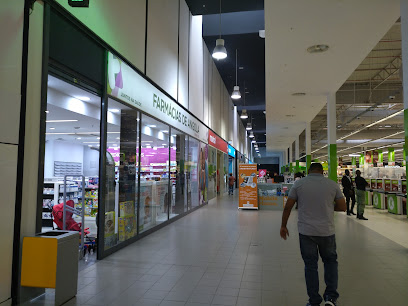
Shopping Avennida
Experience the best of shopping, dining, and entertainment at Shopping Avennida, Luanda's top shopping destination.
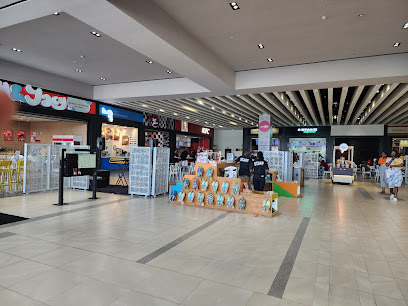
Deskontão
Discover the vibrant shopping experience at Deskontão, Luanda's leading hypermarket, offering a diverse range of products and local delicacies.
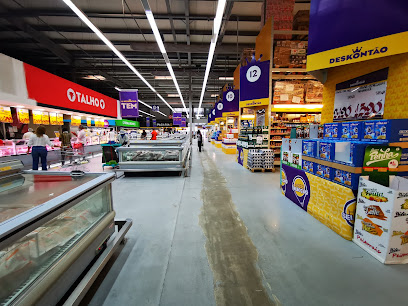
Shopping Fortaleza
Discover the vibrant blend of shopping, dining, and culture at Shopping Fortaleza, Luanda's premier shopping destination along the beautiful Marginal.
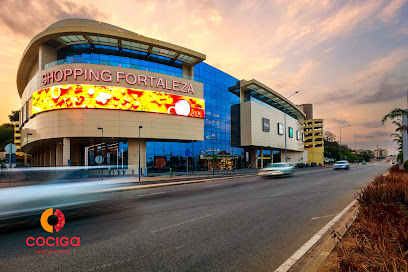
Shopping Atrium Nova Vida
Discover Shopping Atrium Nova Vida: Luanda's premier shopping destination featuring diverse stores, a vibrant atmosphere, and local flavor.
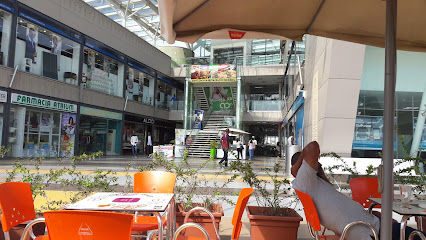
Supermercado Martal
Explore Supermercado Martal, a vibrant supermarket in Maianga offering local Angolan products and a unique shopping experience for tourists.
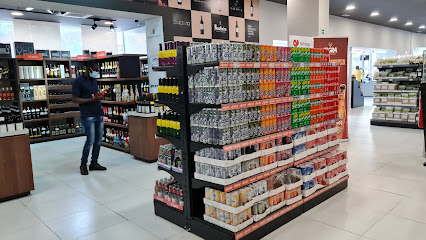
Ana Sousa Luanda
Discover contemporary women's fashion at Ana Sousa Luanda, a stylish clothing store offering elegance and quality in the heart of Angola.
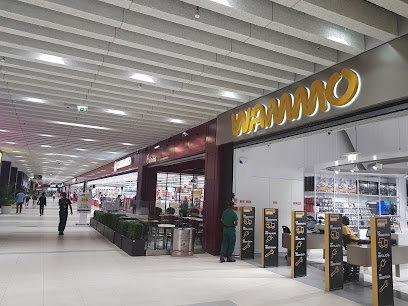
Eduvirtu
Explore Eduvirtu in Belas - a unique education center blending learning experiences with shopping and innovation.
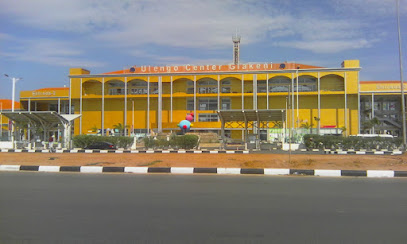
Xyami Morro Bento
Explore the dynamic Xyami Morro Bento Shopping Mall in Luanda for a unique blend of shopping, dining, and entertainment experiences.
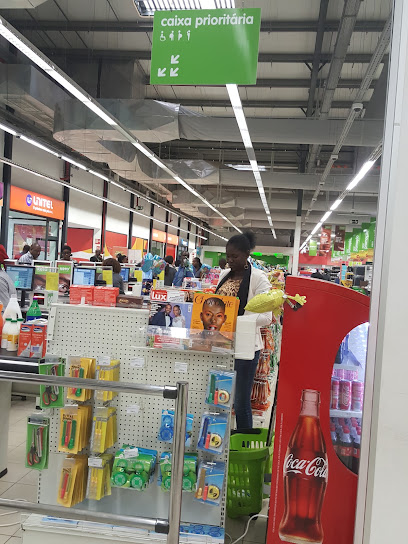
Mega Cash & Carry
Discover budget-friendly shopping at Mega Cash & Carry, Luanda's top discount supermarket for local and international goods.
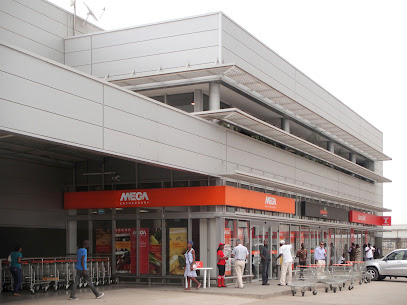
Ginga Shopping
Experience the best shopping, dining, and entertainment at Ginga Shopping Mall in Luanda, Angola.
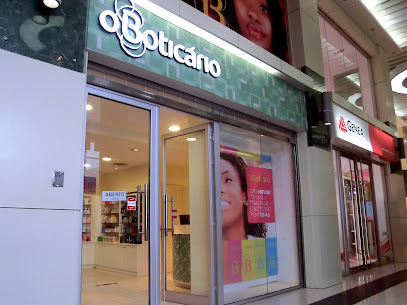
Africell Angola
Discover Africell Angola in Luanda for the best in mobile devices and connectivity solutions during your travels in this vibrant city.
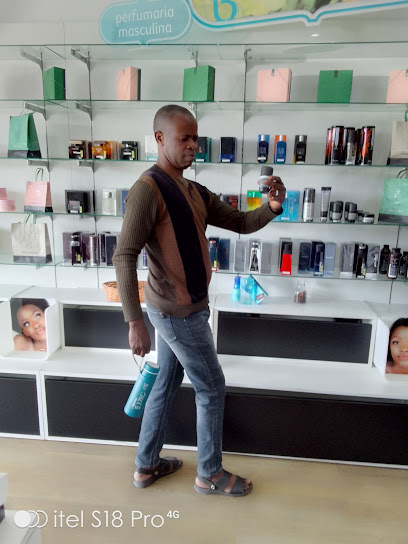
Dukan
Explore Dukan in Luanda for an exceptional shopping experience with quality products for the whole family, all in a vibrant atmosphere.
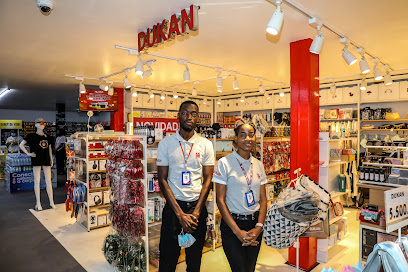
Amana Shopping
Discover the vibrant retail landscape at Amana Shopping in Luanda, where local culture meets modern shopping experiences.
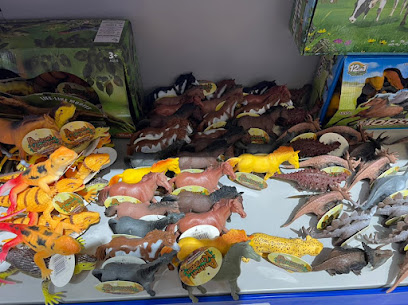
Essential bars & hidden hideouts
BAR BAR
Experience the vibrant nightlife of Luanda at BAR BAR, a local favorite known for its lively atmosphere and diverse drink menu.
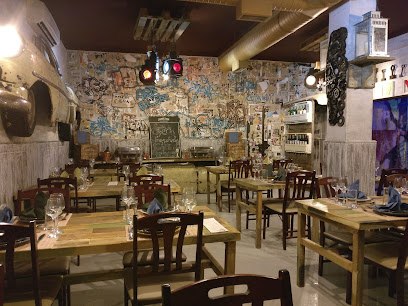
Luanda Bar
Experience the vibrant culture and flavors of Luanda at Luanda Bar, where locals and tourists come together to unwind and enjoy life.
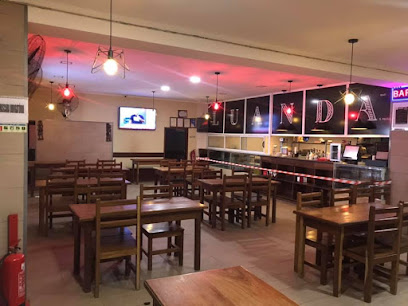
Champagneria Luanda
Experience the vibrant nightlife of Luanda at Champagneria Luanda, offering a premier selection of sparkling wines in a chic atmosphere.
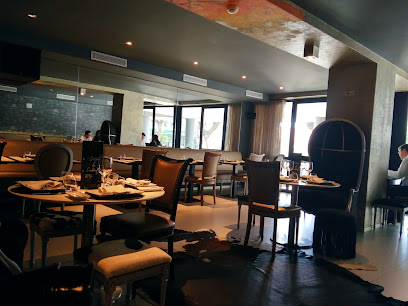
Heritage Lounge Bar
Experience vibrant nightlife at Heritage Lounge Bar in Luanda, a premier cocktail bar and disco hub perfect for relaxation and celebration.
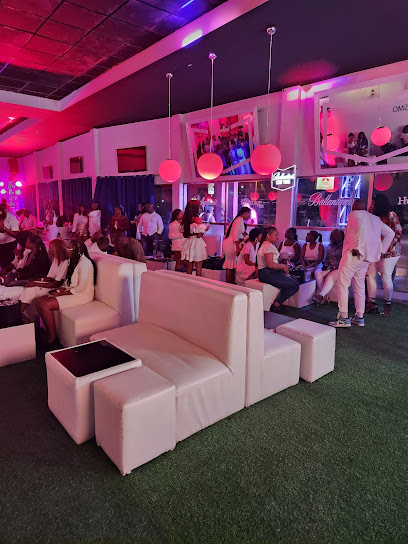
Tudilu Royal Lounge & Bar
Discover the sophisticated charm of Tudilu Royal Lounge & Bar in Luanda, where elegance meets vibrant nightlife and local culture.
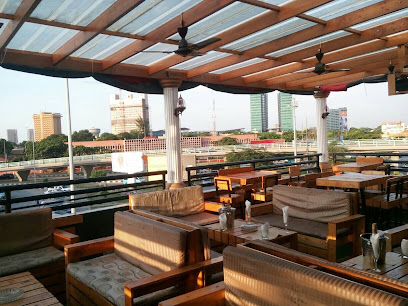
Lido Bar Kinaxixi
Experience the vibrant atmosphere and stunning coastal views at Lido Bar Kinaxixi, Luanda's premier bar for relaxation and entertainment.
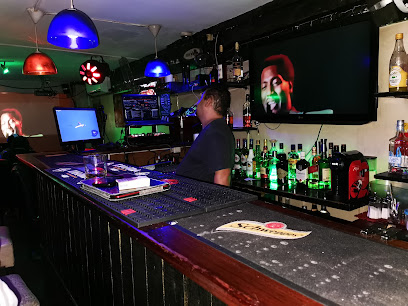
Gin Bar
Discover Luanda's Gin Bar, where exquisite gin meets vibrant nightlife in the heart of Ingombota, perfect for an unforgettable evening.
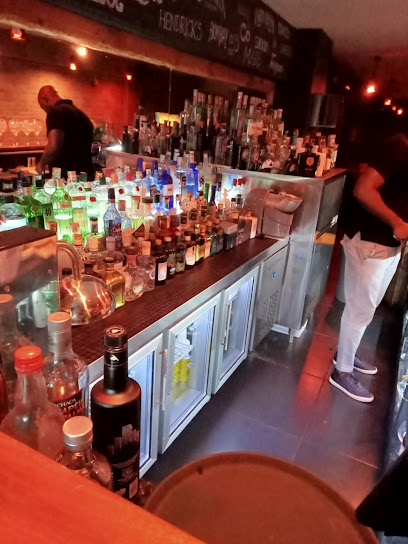
Zen Bar
Discover the lively atmosphere of Zen Bar in Luanda, where creative cocktails and vibrant nightlife await every visitor.
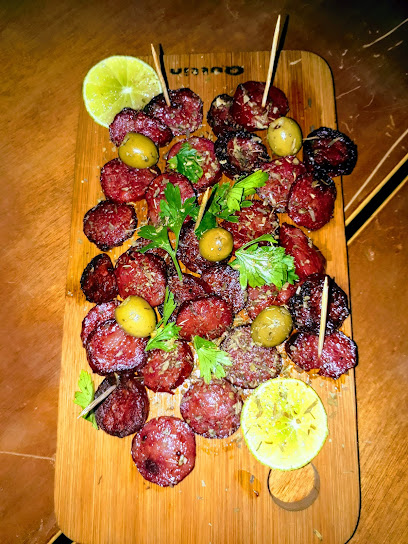
Lïve - Waterfront Bar & Club
Discover the lively ambiance and stunning views at Lïve - Waterfront Bar & Club in Luanda, where unforgettable nights await.
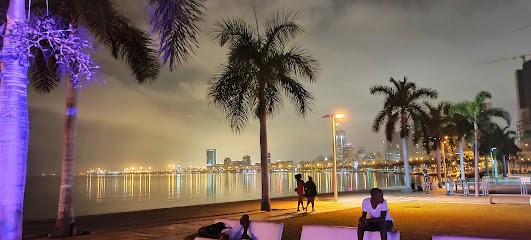
ARC LOUNGE, BAR & CAFÉ DE LUANDA
Discover the enchanting nightlife at ARC Lounge, Bar & Café de Luanda, where music, culture, and cocktails create an unforgettable experience.
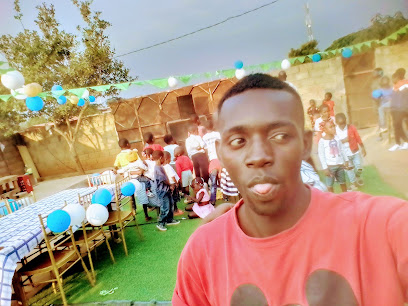
Caverna| Lounge Bar
Discover the vibrant nightlife of Luanda at Caverna Lounge Bar, where exquisite cocktails and a cozy atmosphere await.
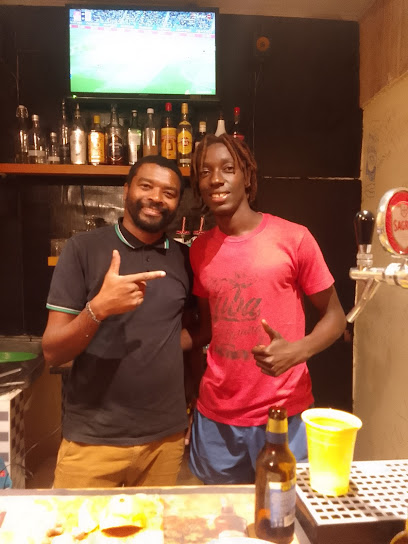
Dibinga Bar
Discover Luanda's vibrant nightlife at Dibinga Bar, where local culture meets a welcoming atmosphere and exquisite drinks.
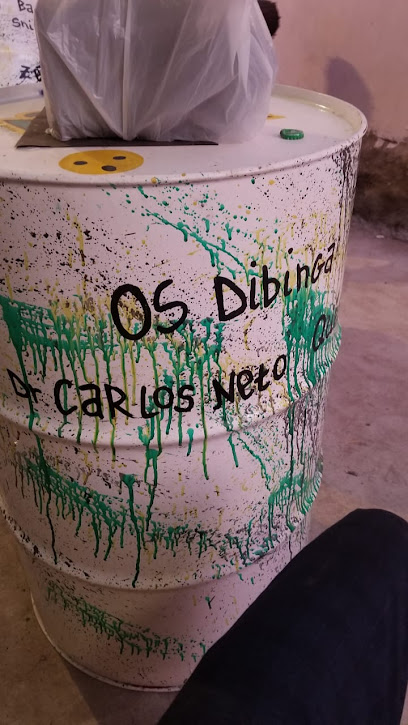
Best Cosmus
Discover the vibrant nightlife of Luanda at Best Cosmus, a bar offering a lively atmosphere and a unique selection of drinks.

Tailor Bar Luanda
Discover the pulse of Luanda's nightlife at Tailor Bar, where refreshing drinks and a vibrant atmosphere await every visitor.
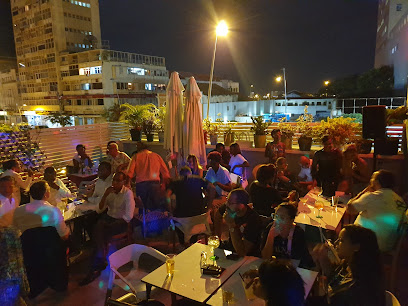
Local Phrases
-
- HelloOlá
[oh-LAH] - GoodbyeTchau
[chow] - YesSim
[seem] - NoNão
[now] - Please/You're welcomePor favor/De nada
[por fah-VOHR/de NAH-da] - Thank youObrigado
[oh-bree-GAH-doo] - Excuse me/SorryDesculpe
[dehs-KOOL-peh] - How are you?Como está?
[KOH-moo ehs-TAH] - Fine. And you?Bem. E você?
[behn. E voh-SEE] - Do you speak English?Fala inglês?
[FAH-lah een-GLEHS] - I don't understandNão entendo
[now ehn-TEN-doo]
- HelloOlá
-
- I'd like to see the menu, pleaseGostaria de ver o menu, por favor
[gohs-tah-REE-ah deh vehr oo MEH-noo, poor fah-VOHR] - I don't eat meatEu não como carne
[eh-oo now KOH-moo KAHR-neh] - Cheers!Saúde!
[sow-OOH-deh] - I would like to pay, pleaseGostaria de pagar, por favor
[gohs-tah-REE-ah deh pah-GAHR, poor fah-VOHR]
- I'd like to see the menu, pleaseGostaria de ver o menu, por favor
-
- Help!Ajuda!
[ah-JOO-dah] - Go away!Vai embora!
[vah-ee ehm-BOH-rah] - Call the Police!Chame a polícia!
[SHAH-meh ah poh-LEE-see-ah] - Call a doctor!Chame um médico!
[SHAH-meh oom MEH-dee-koo] - I'm lostEstou perdido
[ehs-TOH pehr-DEE-doo] - I'm illEstou doente
[ehs-TOH doo-EN-teh]
- Help!Ajuda!
-
- I'd like to buy...Gostaria de comprar...
[gohs-tah-REE-ah deh kohm-PRAR] - I'm just lookingEstou só a ver
[ehs-TOH soh ah vehr] - How much is it?Quanto custa?
[KWAN-too KOOS-tah] - That's too expensiveIsso é muito caro
[EE-soo eh MWEEN-too KA-roo] - Can you lower the price?Pode baixar o preço?
[POH-deh BAHY-shahr oo PREH-soo]
- I'd like to buy...Gostaria de comprar...
-
- What time is it?Que horas são?
[keh OH-rahz sah-oong] - It's one o'clockÉ uma hora
[eh OO-mah OH-rah] - Half past (10)Meia hora (10)
[MAY-ah OH-rah (DEHSS)] - MorningManhã
[mahn-YAH] - AfternoonTarde
[TAHR-deh] - EveningNoite
[NWAH-teh] - YesterdayOntem
[on-TEHM] - TodayHoje
[OH-zheh] - TomorrowAmanhã
[ah-mahn-YAH] - 1Um
[oom] - 2Dois
[doh-eesh] - 3Três
[trehsh] - 4Quatro
[KWAH-troh] - 5Cinco
[SEEN-koh] - 6Seis
[saysh] - 7Sete
[SEH-teh] - 8Oito
[OY-toh] - 9Nove
[NOH-veh] - 10Dez
[dehz]
- What time is it?Que horas são?
-
- Where's a/the...?Onde está o/a...?
[OHN-deh ehs-TAH oo/ah] - What's the address?Qual é o endereço?
[kwahl eh oh ehn-DEH-reh-soo] - Can you show me (on the map)?Pode mostrar-me (no mapa)?
[POH-deh moh-SHAR-meh (noo MAH-pah)] - When's the next (bus)?Quando é o próximo (autocarro)?
[KWAN-doo eh oo proh-SEE-moo (ow-toh-KAH-roo)] - A ticket (to ....)Um bilhete (para ...)
[oom beel-YEH-teh (PAH-rah)]
- Where's a/the...?Onde está o/a...?
History of Luanda
-
Luanda, the capital city of Angola, was founded by Portuguese explorer Paulo Dias de Novais on January 25, 1576. He established a settlement named São Paulo da Assunção de Loanda, which would later become a pivotal hub for trade, especially in slaves, connecting Africa to the Americas and Europe.
-
From the late 16th to the mid-19th century, Luanda was one of the main centers of the transatlantic slave trade. It is estimated that over a million people were shipped from Luanda to various parts of the Americas. This dark period significantly shaped the demographic and cultural landscape of the city.
-
In 1641, the Dutch West India Company captured Luanda, holding it for seven years until the Portuguese regained control in 1648. The Dutch occupation was a notable period of conflict and change, influencing the architectural and military structures within the city.
-
Throughout the 19th and early 20th centuries, Luanda developed as a key Portuguese colonial port. The city saw significant infrastructure development, including the construction of railways and roads, which facilitated trade and the movement of goods.
-
Luanda played a crucial role in Angola's struggle for independence from Portuguese rule. On November 11, 1975, Angola declared its independence, and Luanda became the capital of the newly established Republic of Angola. This period was marked by internal conflicts and civil war, which lasted until 2002.
-
Following the end of the civil war in 2002, Luanda has undergone extensive reconstruction and development. The city has seen rapid urbanization and economic growth, driven by Angola's oil wealth. New skyscrapers, infrastructure projects, and cultural institutions have transformed the city's landscape.
-
Luanda boasts a rich cultural heritage influenced by African, Portuguese, and Brazilian traditions. Key cultural sites include the Fortress of São Miguel, the National Museum of Slavery, and the vibrant music and dance scene, particularly Kuduro and Semba. The city's festivals and markets, such as the Luanda Carnival, reflect its diverse and dynamic cultural fabric.
Luanda Essentials
-
Luanda is served by Quatro de Fevereiro International Airport (LAD), which is located about 4 kilometers from the city center. The airport receives direct flights from several major cities including Lisbon, Johannesburg, and Dubai. Taxis and shuttle services are available at the airport to take you to your accommodation. It's advisable to pre-arrange your airport transfer for convenience and safety.
-
Luanda has a mix of transportation options including taxis, buses, and shared minibuses known as 'candongueiros.' Taxis are the most convenient but can be expensive; always ensure the fare is agreed upon before starting the journey. Public buses are available but can be crowded and less reliable. Renting a car is an option, but be prepared for heavy traffic and challenging driving conditions. Ride-hailing apps like Uber are also operational in Luanda.
-
The official currency in Angola is the Angolan Kwanza (AOA). Credit cards are accepted in many hotels, restaurants, and larger stores, but it's advisable to carry cash for smaller transactions and in more remote areas. ATMs are widely available in Luanda, but be cautious when withdrawing money and avoid using ATMs at night.
-
While Luanda has made significant improvements in terms of safety, it still has areas with higher crime rates, particularly targeting tourists. Avoid the neighborhoods of Sambizanga, Cazenga, and Rangel, especially after dark. Petty crime such as pickpocketing and bag snatching is common in crowded areas. Always be aware of your surroundings and keep valuables out of sight.
-
In case of emergency, dial 113 for police assistance and 112 for medical emergencies. It's advisable to have travel insurance that includes medical coverage. Major hospitals in Luanda include Clinica Sagrada Esperança and Luanda Medical Center. Pharmacies are available throughout the city for minor health issues.
-
Fashion: Do dress modestly and avoid flashy jewelry to reduce the risk of attracting unwanted attention. Religion: Do respect local customs and traditions. When visiting religious sites, dress conservatively. Public Transport: Do be patient as public transport can be crowded and schedules may be erratic. Avoid using public transport late at night. Greetings: Do greet people with a friendly 'Olá' or a handshake. Eating & Drinking: Do try local dishes such as 'muamba de galinha' and 'funge.' Don’t drink tap water; always opt for bottled water.
-
To experience Luanda like a local, visit the Benfica Market for unique crafts and souvenirs. Try to catch a 'kizomba' dance session, a popular Angolan dance. Enjoy a sunset at Ilha do Cabo, a peninsula with beautiful beaches and restaurants. Engage with locals who are generally friendly and willing to share their rich culture and history.
Trending Landmark in Luanda
Nearby Cities to Luanda
-
Things To Do in Uíge
-
Things To Do in Cabinda
-
Things To Do in Lambaréné
-
Things To Do in Ongwediva
-
Things To Do in Oshakati
-
Things To Do in Libreville
-
Things To Do in Etosha Village
-
Things To Do in Mbini
-
Things To Do in Bitam
-
Things To Do in Angolares
-
Things To Do in Rundu
-
Things To Do in Ribeira Afonso
-
Things To Do in Trindade
-
Things To Do in Sao Tome City
-
Things To Do in Guadalupe
















